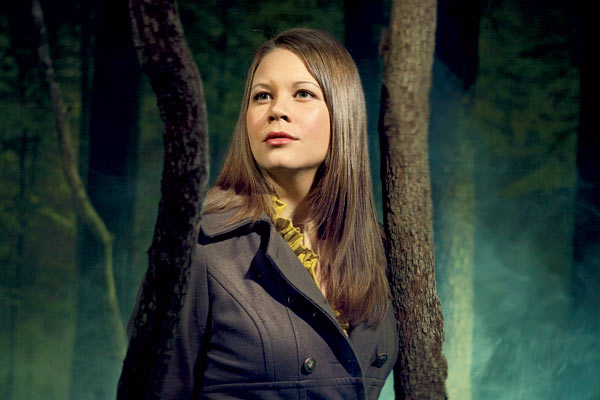
Related:
THE 2010 HONOREES »
Jerry Adelmann »
« Sarah Elizabeth Ippel
Terra Brockman »
Angela Hurlock »
Dan McGowan »
Sarah Elizabeth Ippel unlocks a small wooden door and pulls out two warm, fresh eggs. “Thank you, girls,” she coos at the chickens, some of the permanent residents at the Academy for Global Citizenship, a charter school on the Southwest Side near Midway Airport. The eggs likely will go into the next morning’s student breakfast, and, with that, a zero gets added into the spreadsheet that tracks “food miles”—the distance ingredients travel to get to the school.
If it sounds unusual, it is. No other Chicago public elementary school raises chickens. And few can claim to serve an all-organic breakfast, lunch, and afternoon snack made fresh on the premises every day—sometimes with new eggs or, during growing season, with vegetables from an outdoor container garden. “Everything is made from scratch,” says Ippel, the academy’s founder and executive director. “All of our vegetables are fresh. Nothing comes out of a can.”
The unique foodservice arrangement in the midst of the Chicago Public Schools bureaucracy goes a long way to distinguish the two-year-old Academy for Global Citizenship from its peers. So do the worm-filled composting bins in every classroom; the large wind turbine that sits by the front door; and the daily 4 p.m. yoga practice that is mandatory for the entire 150-student population of kindergarten through second grade. But Ippel knows that she can’t unleash unorthodox practices in the traditional public-school setting and expect them to catch on if the academy isn’t a success. So she’s extending the academic day and year (her students get 36 percent more instruction time annually than the average CPS student) and working toward authorization as an International Baccalaureate school (there are only three public IB primary programs in Chicago). “If we are going to make the case that organic food and yoga and environmental education are imperative throughout the system, the test scores have to be off the charts,” she says. The early outlook is good. In 2008-2009, the school’s first year of operation, the students on average progressed 1.85 years of literacy development in ten months, as measured by the STEP (Strategic Teaching and Evaluation of Progress) assessment administered by the University of Chicago Urban Education Institute.
A native of Grand Rapids, Michigan, Ippel was only 23 when, in 2005, she submitted her first proposal for a globally focused, “green” charter school to the Chicago Board of Education. “I was really feeling a tremendous sense of urgency in preparing our current generation,” she says. It took two more proposals, many door-to-door visits in the Archer Heights/Garfield Ridge neighborhood where the school is based, and much private fundraising to get approval in 2007. “I received an incredible amount of support from people who said [they] believe that this will shift our educational system,” says Ippel, who describes her funding today as a mix of public money (from CPS), corporate sponsorships, grants, and individual donations. The extra money she raises helps pay for the organic food program and plans for the new school that she hopes to see built by 2011. (As executive director, Ippel is responsible for strategic planning and fundraising; the school has a principal, Anne Gillespie, who oversees academic instruction.)
When Ippel describes the planned new school, with its net-zero-energy building and an urban farm, her eyes light up with possibility. Already, the academy feels cramped in the 12,000-square-foot former barrel factory it calls home. “We have learned to love our little piece of cement,” she says. “But it’s time to work our way out.”
Photograph by Ryan Robinson; Assistant: Mark Doddato Styling: Courtney Rust Hair and Makeup: Ashley Condron and Carley Martin/Artists by Timothy Priano


